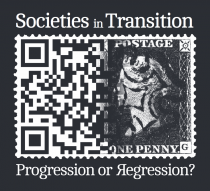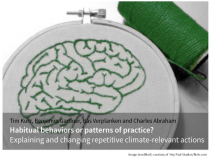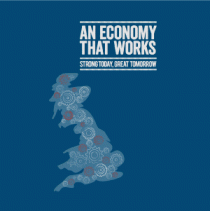- About
- Team
- Projects
- Children and the Environment
- ELiCiT (Exploring lifestyle changes in transition)
- Foundations for Sustainable Living
- HABITs
- Mapping Rebound Effects
- PASSAGE (Prosperity and Sustainability in the Green Economy)
- Policy Dialogue
- Price Responsiveness of Demand in Energy
- Resilience and Sustainable Lifestyles
- Sustainability Transitions in Food Systems
- Sustainable Living in Remote Rural Scotland
- Publications
- News
- Events
Consuming less and having the same: Consumer responses to scarcity
Where:
University of Surrey, Room 45B AZ 04
When:
Feb 8 2013 - 13:00
Seminar, 8 February 2013
Dr Iain Black
Reader, Head of Marketing Group, School of Management and Languages, Heriot Watt University
A central message from the sustainable development community is that we in developed nations must reduce our consumption. We tell consumers, organisations and governments of all levels that we must reduce our ghg outputs, reduce our air travel, reduce our use of cars, reduce the number of televisions and other consumer goods we buy. We should eat less, use less water and consume less overall, indeed, we must have fewer people on this planet.
In this presentation Iain Black discusses a programme of research that examines how consumers respond to these calls. Research using quantitative and qualitative methods will be reported that provides insights into the reactions of consumers when they consume less or consume less than they expect. First, a study exploring a group of mothers from Sydney and Toronto will be presented. These women, coping with becoming mothers, have decided to actively reduce their levels of consumption as part of living more sustainable lives. When exploring their motivations, daily practices and sense self, this research reveals a series of tactics used to manage the identity conflicts their new role and lifestyle lead them to experiencing. Here goods and services are disposed of, rejected or no longer purchased, yet the symbolic meanings behind these products is maintained and transferred on to other, lower environmental impact consumption. In this way, they maintain the benefits derived from consumption whilst consuming less.
He changes tack and examines a series of experiments conducted using high quality Belgian chocolates to examine consumer's responses scarcity. In these experiments, subjects either received the same number, fewer or more chocolates than they had been manipulated to expect. Results show that those subjects who got less than they expected adjust their consumption rate and the level of utility gained from each chocolate so that they were as full and enjoyed the experiences as much, as those who ate more. Again, we see that when consumers are faced with living with less, they make do. This is encouraging, and suggests that we can reassure people that by consuming less, they will not have less.
Please note that any views and opinions expressed in the seminar are those of the speakers and do not necessarily reflect the views of RESOLVE, SLRG, ESRC, Defra, The Scottish Government or the University of Surrey













